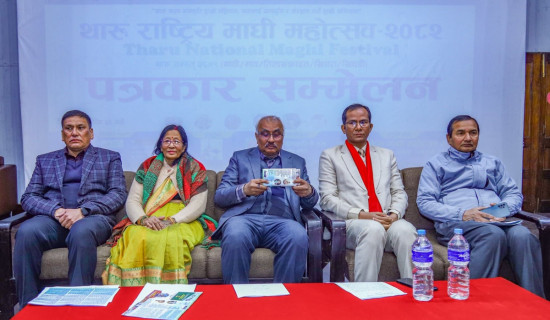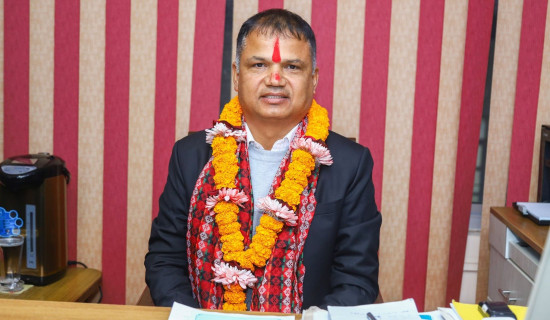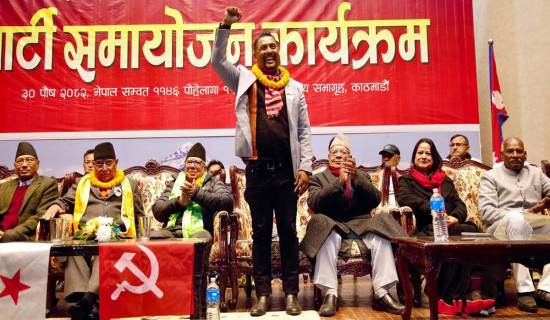- Thursday, 15 January 2026
Marxism Of A New Era
Christian Wagner's "Marxism of a New Era" stands as a groundbreaking work that challenges the conventional understanding of Marxism, making it especially relevant for readers in Nepal who are navigating the balance between cultural identity, economic development, and social achievements. Wagner’s central thesis moves away from the often misunderstood, overly liberal, or Trotskyist interpretations of Marxism, presenting instead a version that deeply integrates cultural and economic realities. This offers a fresh perspective for Nepali readers as the country continues to grapple with social inequalities and economic disparities.
Wagner’s book refuses to treat Marxism as a rigid ideology disconnected from the people’s material and cultural needs. Instead, he emphasises that Marxism, when adapted to the real-world conditions of society, becomes a flexible tool for addressing pressing economic and social issues. For a country like Nepal, which is still building its economic infrastructure and addressing deep-seated social inequalities, this approach is highly relevant.
The author critiques how Marxism has been overly liberalised in some Western contexts, distancing itself from its foundational principles of serving the working class and fostering real material change.
Wagner’s focus on practical solutions rather than theoretical debates is particularly valuable for Nepali readers. Nepal faces critical issues such as poverty, unemployment, and unequal access to education and healthcare. Rather than getting lost in abstract ideological discussions, "Marxism of a New Era" grounds its approach in real-world applications, advocating for policies that address these material needs. This practical outlook resonates with Nepal’s ongoing struggles to bridge the gap between economic development and social equality. Wagner argues that true Marxism must prioritise economic and social reforms in public areas that directly impact people's lives. The unification of classes can never be fulfilled; it's even naïve to think that people will be all equally. Instead, he gives solutions on how to correctly thread the contradictions in society. In a developing nation like Nepal, where economic policies must be carefully tailored to local conditions, his call to address fundamental needs—such as access to jobs, healthcare, and education—is particularly timely, not ideological ideas.
One of the most compelling aspects of Wagner’s book for a Nepali audience is his emphasis on culture. He shows that Marxism does not need to be in conflict with traditional values but can instead work in harmony with them.
This is a critical point for Nepal, country rich in cultural and religious heritage. Wagner’s integration of culture and Marxism provides a framework for addressing societal contradictions without discarding important cultural aspects. His argument that Marxism must be adapted to local cultural contexts—rather than imposing a foreign, Western model—aligns with the needs of countries like Nepal, where culture and tradition remain central to social life.
A core strength of Wagner’s book is its clear rejection of the liberalised, diluted versions of Marxism that have emerged in the West, particularly under the influence of the Frankfurt School and other post-modernist interpretations.
Wagner argues that this liberal Marxism has become too abstract, focusing on superficial topics and losing sight of its primary goal: addressing the material needs of the working class and achieving true social justice. For Nepal, where ideological clarity is crucial in building a more equitable society, this distinction is key. Wagner calls for a return to a Marxism that is rooted in economic and cultural realities, one that is equipped to handle the practical concerns of daily life.
In a country where economic challenges and social inequalities are intertwined with cultural identity, the book approach provides a much needed framework for resolving these contradictions. His book encourages readers in Nepal to see Marxism not as a foreign ideology but as a tool that can be adapted to address their unique challenges. Rather than a top-down, Western-centric view, the book presents a vision of Marxism that is responsive to local conditions—offering a path to national development that aligns with the people’s needs and traditions.
"Marxism of a New Era" is an indispensable read for Nepali scholars, policymakers, and activists seeking a clear, grounded understanding of how Marxism can be applied to foster economic development and social justice in Nepal. By rejecting the overly liberal interpretations of Marxism that have emerged in the West, Wagner offers a new approach that honours both the cultural and material needs of the people. For a country like Nepal, where tradition, culture, and the quest for social equality must coexist, this book offers both a theoretical framework and practical guidance for building a more equitable and prosperous future.
(The author is an assistant professor at Kathmandu School of Law.)
















